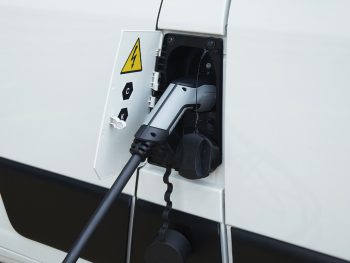The BVRLA has spotlighted the fleet leasing sector’s critical role in Britain meeting its electric vehicle targets under the newly implemented ZEV mandate – while highlighting the need for action on electric vans.

The mandate went live earlier this week – setting increasingly stringent zero-emission vehicle quotas on car and van manufacturers in the run-up to the 2035 ICE ban.
The BVRLA said fleet leasing will be vital to its success. Almost half (42%) of new cars added to the BVRLA’s leasing fleet in Q3 2023 (see report here) were battery electric vehicles (BEVs) – supporting carmakers with work to achieve the 22% ZEV target set for their total new car sales in 2024 under the mandate.
The BVRLA’s leasing fleet already runs more than 400,000 BEVs, representing more than a third of total cars on the fleet. The average age of cars on the fleet is just over three years – showing the role of the sector in feeding the used EV market with reliable second-hand cars.
The association also highlighted how company-provided salary sacrifice car schemes are helping growing numbers of drivers to make the switch to electric. The sal-sac sector is seeing rapid expansion – year-on-year growth of 68% – as it enables more drivers to move to EVs, supported by an attractive Benefit-in-Kind taxation policy.
But the BVRLA warns of several areas where major challenges remain for car and van electrification.
These include private consumer demand for BEVs. In the personal lease sector, demand for electric cars is much weaker. Prospective EV drivers enjoy fewer tax incentives and have concerns around high energy costs and the impending introduction of the Vehicle Excise Duty Expensive Car Supplement for electric cars from April 2025. Electric cars were responsible for just 15% of new personal lease registrations in Q3 2023, well below the ZEV mandate target.
The used car market for BEVs also remains challenging. The supply of used EVs is rising faster than demand, and combined with a lack of confidence within the second-hand market is putting pressure on prices. Latest data shows that the average price of second-hand EVs and hybrids fell by 5.9% in Q4 2023, above the average year-on-year fall of 3.3% seen on the most popular used vehicles.
And while many have pointed out that falling prices for second-hand electric cars are good for consumers in the short term, sustained market turbulence and falls in used vehicle prices eventually lead to higher prices on new leases.
The electric van market also remains a concern. Progress towards van decarbonisation is lagging behind that of cars. Vehicle suitability, transition costs and infrastructure accessibility remain the crucial barriers to overcome. In response, the BVRLA is working with other trade associations and CV bodies to address key concerns and show van operators how to make the switch effectively. A new electric ‘Van Plan’ is being launched in Q1 2024.
Gerry Keaney, BVRLA chief executive, said: “With the introduction of the ZEV mandate officially mapping the UK’s journey to road transport decarbonisation, 2024 marks another critical year for the transition. Opportunities to support the switch are out there. It is now up to us to collectively grab them with both hands.”

